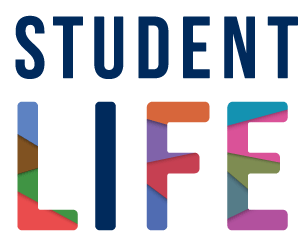Posted on April 29, 2022
By Kirsty Clarke
Navi, U of T’s student mental health wayfinding virtual assistant (chatbot) is the winner of this year’s Canadian Association of College and University Services (CACUSS) Innovation Award.
Navi uses IBM’s Watson Assistant, a virtual assistant using natural language processing to understand questions and provide relevant answers. A student clicks on the chat button and tells Navi what they need help with. Addressing stress and anxiety to experiencing feelings of discrimination or loneliness, or even more serious mental health concerns, Navi helps by quickly searching for and providing the user with contact information and direct links to U of T and community resources to help. Using Navi is anonymous, so students ‘ information isn’t being tracked, and it’s available 24/7. It’s also providing access to data, which helps for better planning and resource allocation.
The CACUSS Innovation Award “recognizes a new or innovative program or service on a campus that has been developed with participation or leadership by a CACUSS member institution or individual. The program or service exemplifies innovation and excellence and could serve as a model or example of promising practice for other CACUSS member institutions.”
Navi was launched in late September 2020 with sponsorship from University of Toronto’s Chief Information Officer Bo Wandschneider and Vice Provost, Students, Sandy Welsh.
“As the saying goes, it takes a village., said David Newman, Executive Director, Student Experience, University of Toronto. “We started building Navi at the beginning of the Covid-19 pandemic, and that meant we had to constantly adapt our processes along the way, leading up to our launch in September of 2020. I’m so appreciative of those who invested time in its development, ranging from the technical team to the project management team, to the 60+ Subject Matter Experts, to our Communications team and most importantly the hundreds of students who helped make Navi a reality.”
The development of the tool coincided with findings from U of T’s Presidential & Provostial Task Force on Student Mental Health, which found that while there are supports available to students across the institution, it was sometimes difficult to find the appropriate service, especially for students experiencing challenges or in a crisis situation.
By using IBM’s chatbot technology, Navi serves as an innovative solution to this challenge, providing an efficient, friendly and effective way for students to explore support. Students can provide feedback to the tool about how it performed, and results have been positive, with students saying things like “You’ve helped me to connect to direct resources in which my U of T health insurance is connected to/covers… so this is rly helpful, thank you!”
and “thank you, you were pretty helpful. i know where to go now if i have another bad mental health day :)”.
The primary intent of Navi is to be a Wayfinder for students, however the tool has had other unexpected benefits, providing data despite the limitations which come with an anonymous platform.
“While we don’t see any information about students, we are able to see the types of questions and topics they are asking Navi. Stakeholders such as Health Promotions and Wellness teams can use this information to create new resources (based on need), determine the most important topics at certain times of the year, and adjust programming accordingly,” said Meagan Lau, Project Manager.
“ We have seen students talk to Navi about topics they aren’t always comfortable asking about in person, such as pornography and video game addiction. This has led to resource development and content in Navi about these topics, providing students way to explore without feeling stigmatized or scared,” said Elsa Kiosses, a Health Promotion nurse on the Scarborough campus.
The tool was created with input from subject matter experts across all campuses providing insight on student needs and interests and responding to ongoing issues Navi had identified as students used it.
David Newman responded to the notice of the award in a video:
“On behalf of the team that developed Navi we are so grateful to be the recipient of the CACUSS Innovation Award. Supporting student mental health is a priority at the University of Toronto, as it is across the sector.”
Check out Navi at uoft.me/navi and contact Meagan Lau if you’d like more details or would like a Navi widget/icon for your site.




